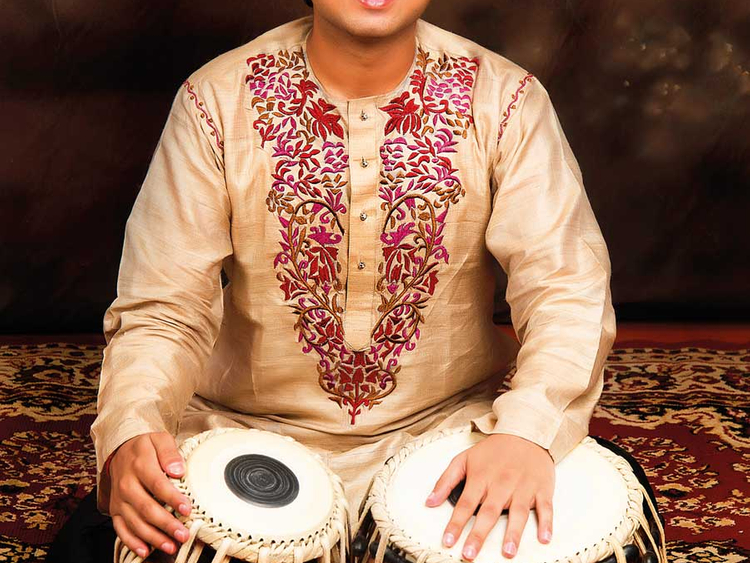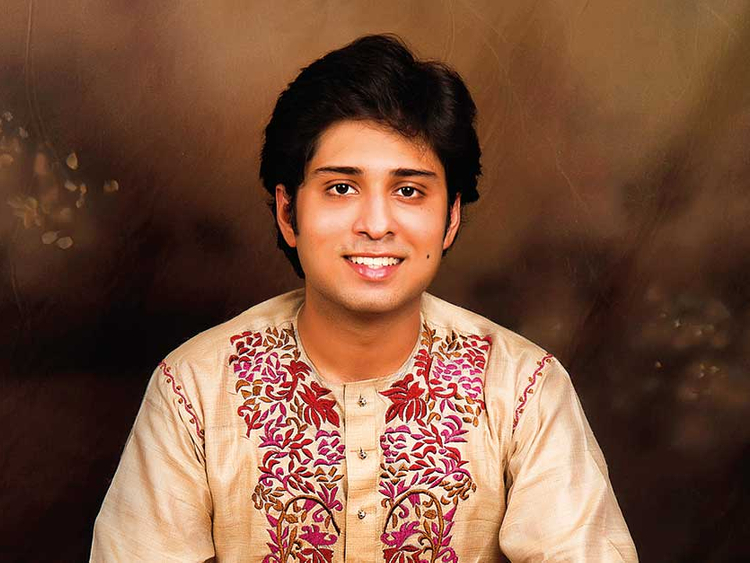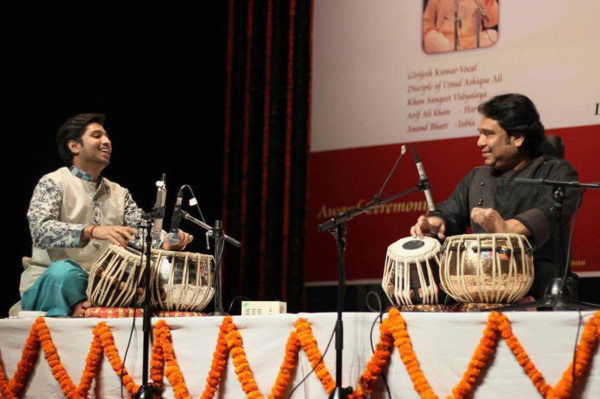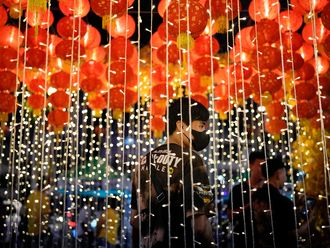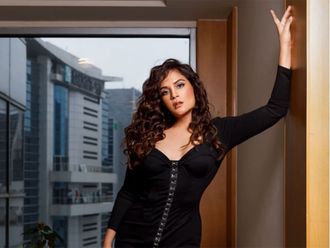For the past more than a decade, tabla player Shariq Mustafa has been enthusiastically carrying forward his family’s legacy. He’s one of a fifth generation from the renowned Farrukhabad gharana [a distinct style initiated by a family of musicians] of Moradabad in northern India’s Uttar Pradesh state and among the few musicians who continue to represent their family tradition. In addition, he is developing unique styles to play the tabla, which includes the gharanas of Delhi, Lucknow, Punjab and Benaras.
The Farrukhabad gharana has contributed immensely to the world of Indian classical music. A gharana is born out of a creative contribution by performers of extraordinary talent. While it can only be established and recognised when accepted by the connoisseurs of music, the gharana has to continue for at least three generations — whether from father to son or from guru to shishya [teacher to pupil].
“I’m passionate about fusion. It challenges me to come out of my comfort zone,” says Shariq Mustafa |
The Thirakwas’ foray into classical music began with Shariq’s great grandfather, Baba Kalandar Baksh, who passed the legacy on to his son Ustad Sher Khan. Subsequently, the latter’s nephew, the legendary tabla player of all times, Ustad Ahmed Jaan Thirakwa — referred to as the Mount Everest of Tabla — took over.
From there, it was taken over by Ustad Rashid Mustafa Thirakwa, who obtained a strong grounding from his father Ustad Mohammed Jaan Khan, and later strengthened his skill under the tutelage of his uncle Ustad Ahmed Jaan Thirakwa. Shariq Mustafa, the 23-year-old son of Ustad Rashid Mustafa Thirakwa, now continues the lineage.
Incidentally, Thirakwa is not their actual family surname, but an epithet that Ustad Ahmed Jaan earned during childhood from his guru’s father Ustad Kale Khan, who named him ‘Thirakwa’ – derived from the verb ‘thirakna’ meaning ‘dancing’. The nickname, bestowed upon him due to his restless nature and the way his fingers danced on the tabla, stuck to him.
Excerpts:
How and when did you become interested in following your father’s footsteps?
My informal training began at a young age and my mother played an important role in my tabla-playing career. That was the time when my father, Ustad Rashid Mustafa Thirakwa, was usually travelling and giving performances both in India and abroad. And I would spend most of my time playing after returning from school. Sensing I was wasting my time, one day my mother said she would allow me to go out to play only if I practised playing the tabla daily for at least half-an-hour. That did the trick as it helped develop an interest in the instrument and shaped up my career.
At what age did you perform your first stage show?
I must have been 11 at the time of giving my first substantial performance — along with my father — in New Delhi.
Being part of the fifth generation of musicians, what pressures, if any do you face?
As happens with sons and daughters of artistes, the pressure to perform as well as our father and grandfather is always there. Sometimes it is too much to handle. But fortunately, my father never pressurised me to become a tabla player. Though he is quite cool about it, at the same time he is strict about daily riyaz (practice). I too always treat myself as his student rather than his son, especially on stage.
What interesting stories of your forefathers you’ve grown up listening to?
I have often heard about my grandfather Ustad Ahmed Jaan Thirakwa — that a short video clip on him playing the tabla was screened in movie theatres before the start of a film. And that he was so good; it was acknowledged that no one could match his rhythm.
Did these stories play a role in your coming into the music fold as you wanted to opt for the civil services at one time?
In a way, yes, the stories helped because every time people spoke about him, I felt a sense of elation being his grandson. But that time I did not know that it would also add to people’s huge expectations from me! Now I do realise the responsibility that I have. In fact, somewhere during the formative years, my fad for the civil services took a back seat and I opted to become a professional tabla player. I received prestigious scholarships from the Sahitya Kala Parishad at the state level and, in 2012-13 was the only tabla player out of the many from all over the country, to receive the national level scholarship from the Ministry of Culture.
Unlike others in the family, you are also a singer. How did you venture into singing?
I was 15, when one day, my father heard me singing along with my cousins. He liked what he heard and implored me to further my interest. Also, my father tells me that when I was born, my maternal grandfather Ustad Sabri Khan, a sarangi legend, had predicted that I would become a singer as well. No one gave it a thought then but the prediction has come true. Incidentall, even my paternal grandfather was a trained singer and a tabla player.
So, where does your singing take you?
I am the lead vocalist of Mystique Sufi, a band that was created a few years ago. We do renditions of the compositions by Ustad Nusrat Fateh Ali Khan and other sufi singers and Bollywood music. We play several instruments like the base guitar, electronic guitar, keyboard and percussion instruments like tabla, darbuka and drums.
Are you also inclined towards Western forms of music and instruments?Oh yes, besides my bent towards classical, I’m passionate about fusion. It challenges me to come out of my comfort zone and I find myself quite adaptable to this change. Apart from being part of many fusion projects, I have jointly worked with artists such as Patsy Reid from Scotland. I am also well versed in playing instruments like the darbuka, cajon and djembe.
Which countries have you travelled to for performances?
I have visited many countries including the UK, UAE, Saudi Arabia, Qatar and some South American countries, performing with, apart from my father – eminent flautist Pandit Hari Prasad Chaurasia, sarangi maestro Ustad Kamal Sabri and ghazal singer Pankaj Udhas.
Without belittling the contribution of the Thirakwas and other gharanas, would you agree that in India, the tabla is more or less synonymous with Pandit Zakir Hussain, who made it fashionable and a household name?
I totally agree with this. There is no doubt that his contribution to the tabla has made the instrument world famous and it is being used in every kind of music. I am a huge fan of Pandit Zakir Hussain and try to follow his style.
Nilima Pathak is a journalist based in New Delhi.



